Being a vegetarian for the last 25 years I have always been conscious of my nutritional needs and have tried to maintain a pretty well balanced diet. I have always been aware of the nutrients I am lacking in my diet and have tried to find alternative sources of those nutrients so that I can continue to operate at peak performance. This guide is for anyone that is looking for information about vegan and vegetarian nutrition for long distance runners.
In the article we are going to explore the nutritional needs for vegan and vegetarian long distance runners, where they can get those nutrients, what foods they can prepare to get those nutrients, and some common myths surrounding vegans and vegetarians in performance sports.
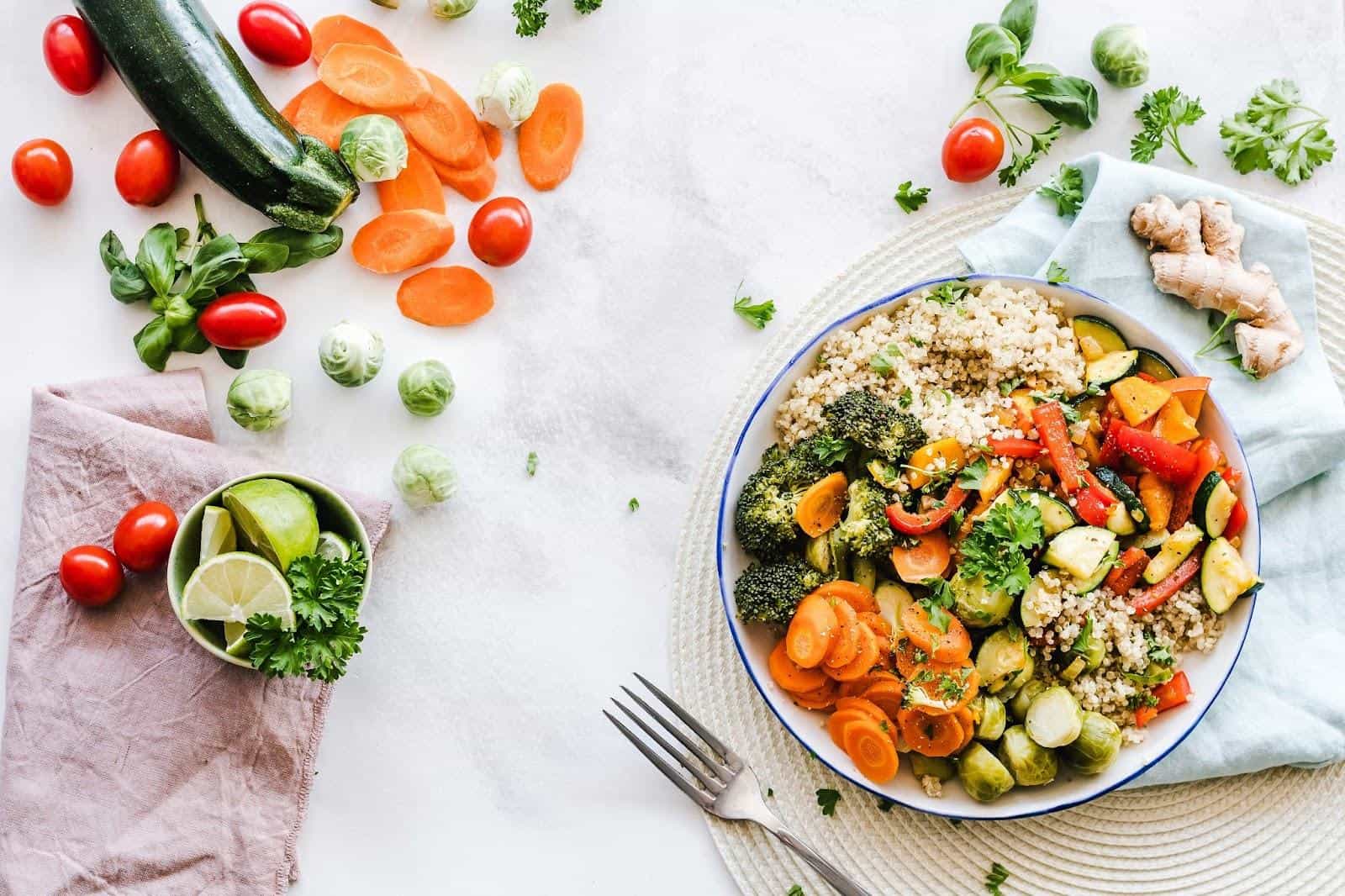
A vegan diet is a plant-based diet that excludes all animal products, including meat, poultry, fish, dairy, eggs, honey, and any other animal-derived ingredients. Vegans rely on plant-based sources of protein, such as beans, lentils, tofu, and nuts, as well as vegetables, fruits, whole grains, and plant-based fats for their nutrition.
A vegetarian diet is a plant-based diet that excludes meat, poultry, and fish, but may include other animal products, such as dairy and eggs. Vegetarians also rely on plant-based sources of protein, as well as vegetables, fruits, whole grains, and plant-based fats for their nutrition. There are different types of vegetarian diets, including lacto-ovo-vegetarian, which includes dairy and eggs, and lacto-vegetarian, which includes dairy but excludes eggs.
Nutrition is crucial for long distance running as it can impact performance, endurance, recovery, and overall health. Long distance running requires sustained energy, and proper nutrition can help provide the necessary nutrients and fuel for the body to perform at its best. Here are some key reasons why nutrition is important for long distance runners:
- Energy production: Long distance running requires a lot of energy, and proper nutrition can help provide the necessary fuel for the body to sustain energy levels during a run.
- Muscle recovery and repair: Long distance running can cause muscle damage, and proper nutrition can help aid in muscle recovery and repair, reducing the risk of injury and improving overall performance.
- Hydration: Adequate hydration is crucial for long distance running, as it helps regulate body temperature, prevent dehydration, and maintain optimal physical and mental function.
- Immune function: Long distance running can temporarily suppress the immune system, increasing the risk of illness and infection. Proper nutrition can help support immune function, reducing the risk of illness and aiding in recovery.
- Overall health and wellbeing: Proper nutrition can help support overall health and wellbeing, providing the necessary nutrients and antioxidants to prevent chronic diseases, maintain a healthy weight, and promote optimal physical and mental function.
Macronutrients
Protein
Protein is important for long distance runners, as it helps to repair and rebuild muscle tissue that is damaged during exercise, and supports muscle growth and maintenance. The amount of protein needed for long distance runners depends on a variety of factors, including body weight, training intensity, and training volume. However, the American College of Sports Medicine recommends that endurance athletes consume between 1.2 to 1.4 grams of protein per kilogram of body weight per day.
For example, a 150 Pound long distance runner should consume between 2.5 and 3.5 ounces of protein per day. It’s important to note that consuming excessive amounts of protein does not necessarily lead to better performance, and can actually place unnecessary stress on the kidneys and liver. Therefore, it’s important to consume a balanced diet that meets overall energy and nutrient needs.
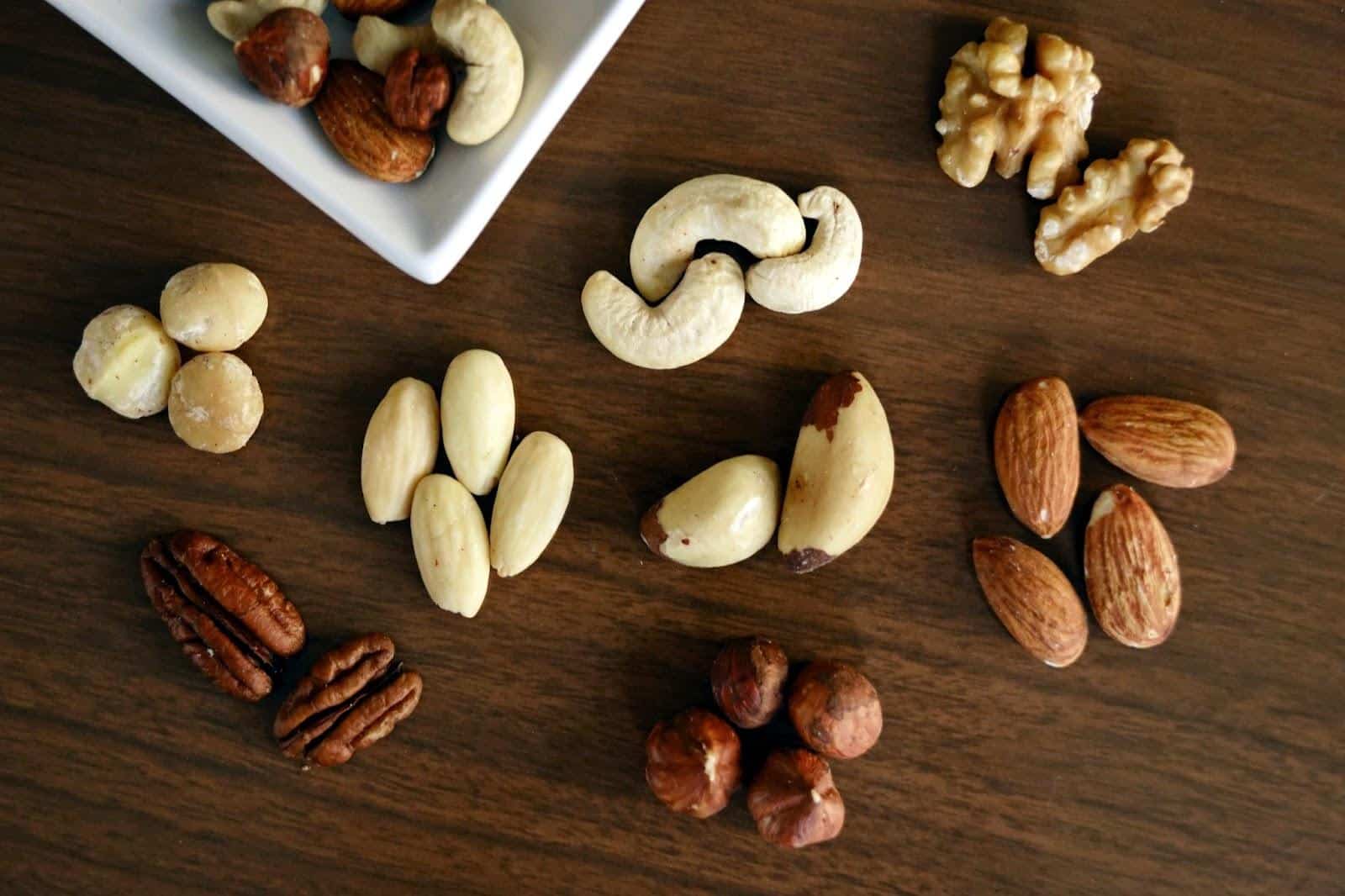
Plant-based sources of protein for long distance runners include:
- Legumes: such as lentils, chickpeas, and beans
- Soy products: such as tofu, tempeh, and edamame
- Nuts and seeds: such as almonds, cashews, pumpkin seeds, and chia seeds
- Whole grains: such as quinoa, barley, and brown rice
- Vegetables: such as spinach, broccoli, and peas
By including a variety of these plant-based protein sources in their diet, long distance runners on vegan or vegetarian diets can meet their protein needs and support their athletic performance.
Carbohydrates
Carbohydrates are the main source of energy for long distance runners, as they provide the glucose that fuels working muscles during exercise. It’s important for long distance runners to consume enough carbohydrates to maintain energy levels and endurance during a run, and to support glycogen storage in the muscles and liver. The American College of Sports Medicine recommends that endurance athletes consume 6-10 grams of carbohydrate per kilogram of body weight per day, depending on the intensity and duration of their training.
For example, a 150-pound long distance runner should consume between 15 and 25 ounces of carbohydrates per day. It’s also important to consume carbohydrates before, during, and after long runs to support energy levels and recovery.
Plant-based sources of carbohydrates for long distance runners include:
- Whole grains: such as brown rice, quinoa, and whole wheat bread
- Fruit: such as bananas, berries, and oranges
- Vegetables: such as sweet potatoes, carrots, and beets
- Legumes: such as lentils, chickpeas, and black beans
- Energy gels and sports drinks: specifically designed for athletes to consume during long runs to support energy levels and hydration.
By including a variety of these plant-based carbohydrate sources in their diet, long distance runners on vegan or vegetarian diets can meet their carbohydrate needs and support their athletic performance.
Fats
Fats are also an important nutrient for long distance runners, as they provide energy, aid in the absorption of fat-soluble vitamins, and support cell function and hormone production. However, the type and amount of fat consumed can impact athletic performance and overall health.
The American College of Sports Medicine recommends that endurance athletes consume 20-35% of their daily calories from fat, with a focus on consuming unsaturated fats such as monounsaturated and polyunsaturated fats. This includes plant-based sources of fat such as:
- Nuts and seeds: such as almonds, walnuts, chia seeds, and flax seeds
- Avocado and olives
- Plant-based oils: such as olive oil, canola oil, and coconut oil (in moderation)
- Fatty fish: such as salmon, tuna, and sardines (for non-vegan or vegetarian athletes)
It’s important for long distance runners to consume a balanced diet that includes adequate amounts of fat, but not to consume excessive amounts of saturated and trans fats. These types of fats can increase the risk of chronic diseases and impact athletic performance.
Overall, long distance runners on vegan or vegetarian diets can meet their fat needs by including a variety of plant-based sources of unsaturated fats in their diet, and by consuming a balanced diet that meets their overall energy and nutrient needs.
Micronutrients
Micronutrients are essential nutrients that are required in small amounts to maintain various physiological functions in the body. For long distance runners, micronutrients play a critical role in energy metabolism, muscle contraction, immune function, and bone health. Here are some examples of key micronutrients for long distance runners:
- Iron
- Calcium and vitamin D
- B vitamins
- Zinc
- Magnesium
Iron
Iron is an essential nutrient for long distance runners, as it plays a key role in transporting oxygen throughout the body. During exercise, the body requires more oxygen to support working muscles, and therefore requires more iron to support the production of red blood cells. Iron deficiency can lead to fatigue, decreased endurance, and impaired athletic performance.
The recommended daily intake of iron for adult men is 8 milligrams per day, and for adult women is 18 milligrams per day. However, female long distance runners may have higher iron needs due to menstrual blood loss.
Plant-based sources of iron for long distance runners include:
- Legumes: such as lentils, chickpeas, and beans
- Dark leafy greens: such as spinach, kale, and collard greens
- Fortified cereals and grains: such as fortified breakfast cereals and enriched pasta
- Nuts and seeds: such as cashews, pumpkin seeds, and quinoa
- Dried fruit: such as apricots and raisins
It’s important to note that iron from plant-based sources may not be as easily absorbed by the body as iron from animal sources. Therefore, it’s important for long distance runners on vegan or vegetarian diets to consume iron-rich foods with sources of vitamin C (such as citrus fruits or bell peppers), which can enhance iron absorption.

Long distance runners should also be aware that excessive iron intake can be harmful to health, and should not take iron supplements without first consulting with a healthcare provider.
Calcium
Calcium is important for long distance runners, as it plays a key role in bone health and can help prevent stress fractures and other bone injuries that can result from the repetitive impact of running. The recommended daily intake of calcium for adults aged 19-50 is 1000 milligrams per day.
Plant-based sources of calcium for long distance runners include:
- Dark leafy greens: such as kale, collard greens, and spinach
- Fortified plant-based milks: such as soy, almond, or oat milk
- Tofu: made with calcium sulfate
- Nuts and seeds: such as almonds and sesame seeds
- Fortified orange juice
It’s important for long distance runners on vegan or vegetarian diets to consume adequate amounts of calcium to support bone health. In addition to consuming calcium-rich foods, it’s also important to engage in weight-bearing exercise (such as running) to support bone health.
However, long distance runners should also be aware that excessive calcium intake can lead to health problems, such as kidney stones. It’s important to consume calcium within recommended daily limits, and to not rely solely on calcium supplements for meeting calcium needs.
Vitamin B12
Vitamin B12 is an important nutrient for all athletes, including vegan long distance runners. Vitamin B12 plays a crucial role in the production of red blood cells and in the functioning of the nervous system. However, it is only found naturally in animal-based foods, which means that vegans are at risk of deficiency if they do not consume fortified foods or supplements.
The recommended daily intake of vitamin B12 for adults is 2.4 micrograms per day. Vegan long distance runners can obtain vitamin B12 from fortified foods such as plant-based milks, breakfast cereals, and nutritional yeast. They can also take vitamin B12 supplements to ensure that they are meeting their daily needs.
It’s important for vegan long distance runners to be aware of their vitamin B12 status, as deficiency can lead to anemia, nerve damage, and other health problems that can impact athletic performance. Blood tests can determine whether someone is deficient in vitamin B12, and a healthcare provider can recommend appropriate supplements or dietary changes.
Overall, vegan long distance runners can meet their vitamin B12 needs through a balanced diet that includes fortified foods and supplements, and should monitor their vitamin B12 status to ensure optimal health and athletic performance.
Other Key Micronutrients
In addition to protein, carbohydrates, fat, iron, calcium, and vitamin B12, there are several other key micronutrients that are important for long distance runners:
- Magnesium: Magnesium is involved in over 300 enzymatic reactions in the body, including energy production and muscle function. It also helps regulate electrolyte balance, which is important for endurance athletes. Good sources of magnesium for vegan long distance runners include nuts, seeds, whole grains, and leafy green vegetables.
- Zinc: Zinc is important for immune function, protein synthesis, and wound healing, all of which are important for long distance runners. Good sources of zinc for vegan long distance runners include legumes, nuts, seeds, and whole grains.
- Vitamin D: Vitamin D is important for bone health and immune function, and can also impact athletic performance. Vitamin D is primarily obtained through sun exposure, but can also be obtained from fortified foods or supplements. Vegan sources of vitamin D include fortified plant-based milks and supplements.
- Omega-3 fatty acids: Omega-3 fatty acids are important for reducing inflammation and supporting heart health. Good sources of omega-3s for vegan long distance runners include flaxseeds, chia seeds, hemp seeds, and walnuts.
- Vitamin C: Vitamin C is important for immune function and can also enhance iron absorption. Good sources of vitamin C for vegan long distance runners include citrus fruits, berries, and bell peppers.
Overall, a varied and balanced vegan or vegetarian diet that includes a variety of nutrient-dense foods can provide all of the key micronutrients that long distance runners need to support optimal health and athletic performance.
Meal Planning for Long Distance Runners
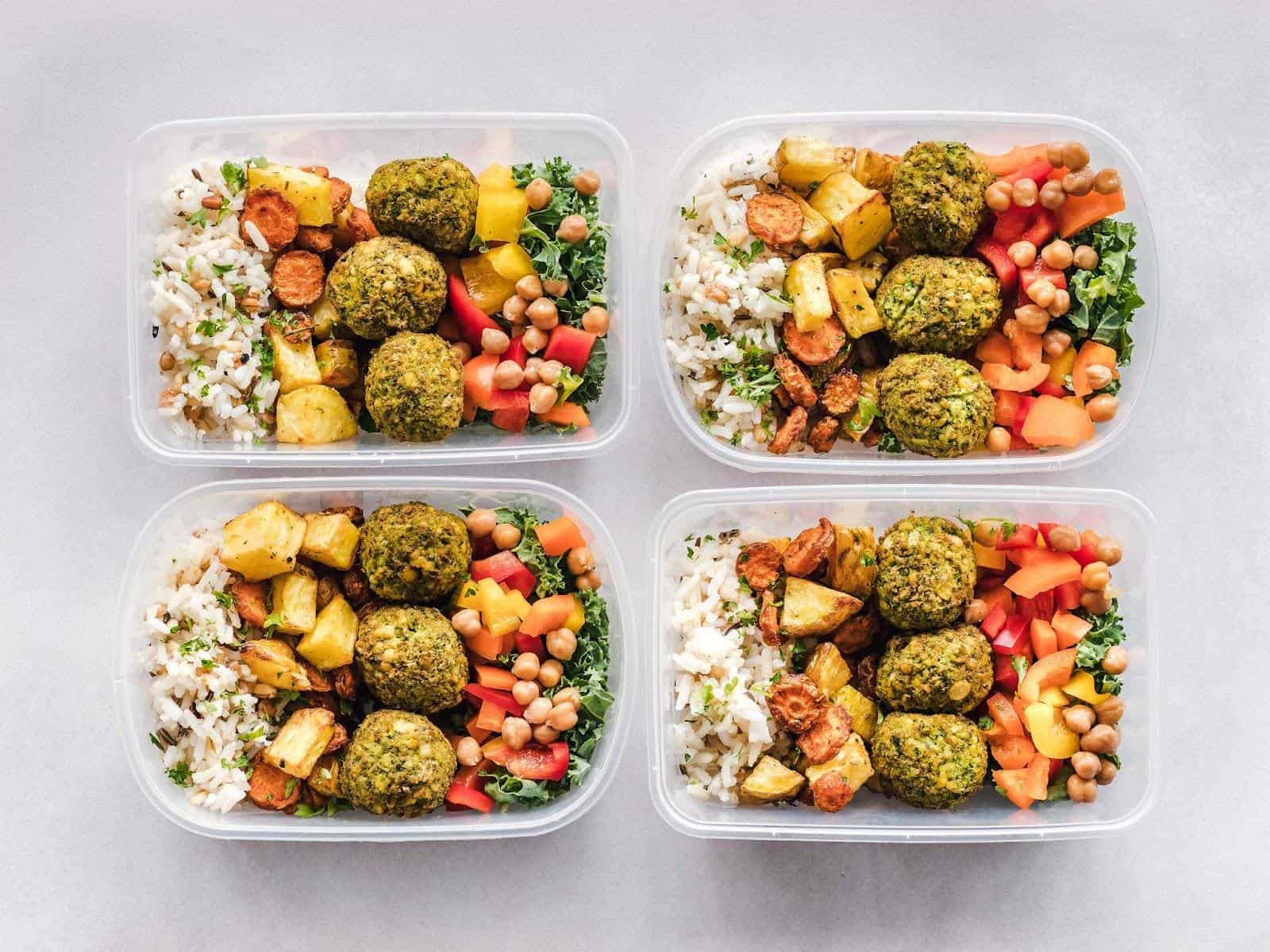
Here are some general nutrition guidelines that can help long distance runners optimize their performance and recovery:
- Focus on carbohydrate-rich foods: Carbohydrates are the primary fuel source for endurance exercise, so it’s important for long distance runners to consume plenty of carbohydrate-rich foods such as whole grains, fruits, vegetables, and legumes. Aim for a carbohydrate intake of 3-5 grams per kilogram of body weight per day, and consume carbohydrates before, during, and after exercise to support energy levels and recovery.
- Consume adequate protein: Protein is important for muscle repair and recovery, and can also help prevent muscle breakdown during long distance running. Aim for a protein intake of 1.2-1.6 grams per kilogram of body weight per day, and consume protein-rich foods such as legumes, tofu, tempeh, nuts, seeds, and whole grains.
- Hydrate adequately: Staying hydrated is crucial for endurance exercise, as dehydration can lead to decreased performance and increased risk of injury. Aim to consume 16-20 ounces of water or sports drink per hour of exercise, and monitor urine color to ensure adequate hydration.
- Consume adequate calories: Long distance runners need to consume enough calories to support their energy needs, especially during periods of heavy training. Use a food diary or tracking app to monitor calorie intake and ensure that you are consuming enough to support your energy needs.
- Focus on nutrient-dense foods: Nutrient-dense foods such as fruits, vegetables, whole grains, and legumes are important for providing the vitamins, minerals, and antioxidants that long distance runners need to support optimal health and performance. Focus on incorporating a variety of these foods into your diet on a daily basis.
- Consider supplements: While a balanced vegan or vegetarian diet can provide all of the key nutrients that long distance runners need, some athletes may benefit from supplements such as vitamin B12, iron, or omega-3 fatty acids. Consult with a healthcare provider or registered dietitian to determine whether supplements are necessary for your individual needs.
Overall, long distance runners should aim for a balanced and varied diet that provides adequate energy, carbohydrates, protein, and micronutrients to support their training and performance goals. Consult with a healthcare provider or registered dietitian for individualized nutrition recommendations.

Sample Vegan And Vegetarian Meal Plans For Long Distance Runners
Here are some sample vegan and vegetarian meal plans that can provide adequate nutrition for long distance runners:
Sample Vegan Meal Plan:
Breakfast: Tofu scramble with spinach, peppers, and whole grain toast
Snack: Apple slices with almond butter
Lunch: Lentil soup with whole grain bread and side salad
Snack: Trail mix with dried fruit, nuts, and seeds
Dinner: Chickpea and vegetable stir-fry with brown rice
Dessert: Vegan banana bread with peanut butter
Sample Vegetarian Meal Plan:
Breakfast: Greek yogurt with mixed berries and granola
Snack: Carrot sticks with hummus
Lunch: Quinoa salad with mixed vegetables and feta cheese
Snack: Roasted edamame
Dinner: Sweet potato and black bean enchiladas with side salad
Dessert: Greek yogurt with honey and chopped nuts
Sample Vegan Meal Plan:
Breakfast: Oatmeal with almond milk, topped with berries, nuts, and seeds
Snack: Rice cakes with avocado and salsa
Lunch: Quinoa and black bean salad with roasted vegetables
Snack: Homemade energy bars with oats, dates, and peanut butter
Dinner: Lentil and vegetable curry with brown rice
Dessert: Fresh fruit salad with coconut yogurt
Sample Vegetarian Meal Plan:
Breakfast: Scrambled eggs with sautéed spinach and whole grain toast
Snack: Greek yogurt with honey and mixed nuts
Lunch: Chickpea and spinach salad with whole grain pita bread
Snack: Roasted chickpeas with spices
Dinner: Vegetable lasagna with a side salad
Dessert: Fresh berries with whipped cream
These sample meal plans provide a good balance of carbohydrates, protein, and micronutrients to support the energy needs of long distance runners. However, individual nutrition needs may vary based on training volume, intensity, and body weight. It’s important to consult with a registered dietitian to determine individualized nutrition needs and meal plans.
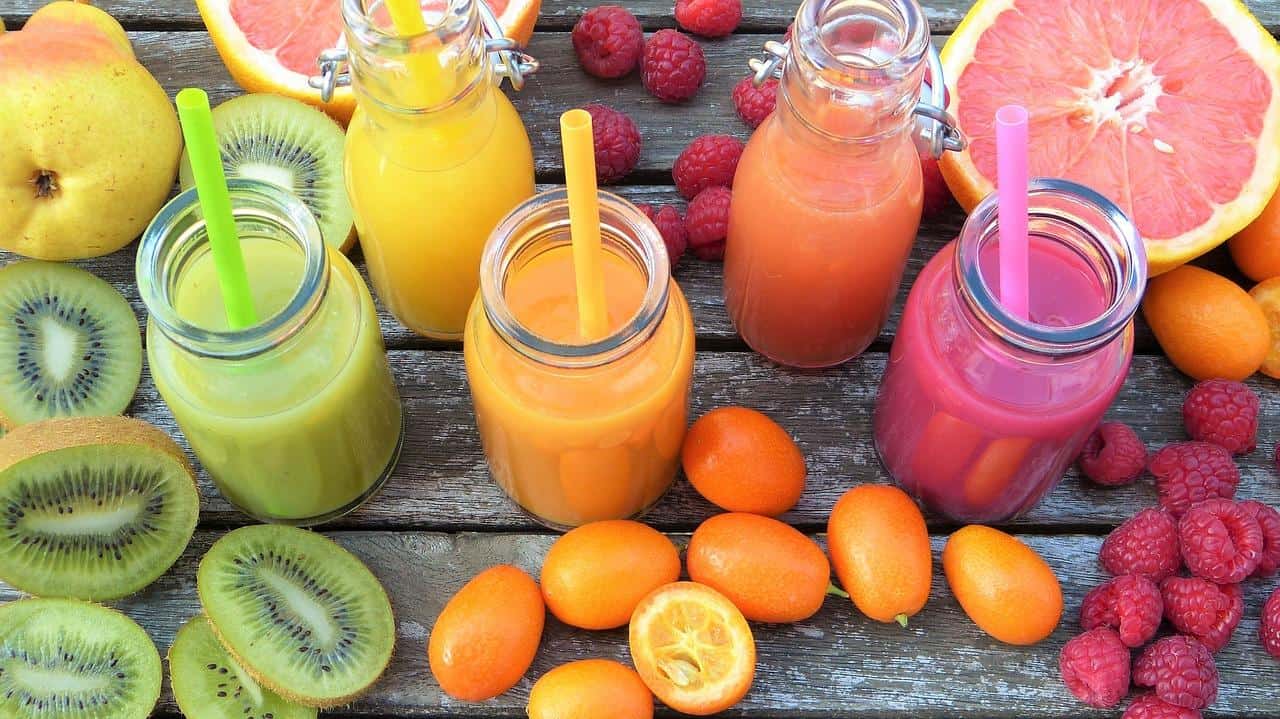
Pre-run And Post-run Nutrition Recommendations
Proper nutrition before and after a long distance run is essential for optimal performance and recovery. Here are some pre-run and post-run nutrition recommendations for vegan and vegetarian runners:
Pre-Run Nutrition Recommendations:
- Carbohydrates: Consuming carbohydrates before a long run can help to provide energy and delay fatigue. Some good vegan and vegetarian sources of carbohydrates include whole grain bread, oats, fruits, and vegetables.
- Hydration: Staying hydrated before a long run is essential for optimal performance. Drink water or other fluids regularly throughout the day leading up to the run.
- Protein: Consuming protein before a long run can help to support muscle repair and recovery. Good vegan and vegetarian sources of protein include tofu, tempeh, lentils, and beans.
- Timing: It’s important to eat a pre-run meal or snack at least 1-2 hours before the run to allow for proper digestion. Experiment with different types and amounts of food to find what works best for you.
Post-Run Nutrition Recommendations:
- Carbohydrates: Consuming carbohydrates after a long run can help to replenish glycogen stores and promote recovery. Some good vegan and vegetarian sources of carbohydrates include fruits, whole grain bread, pasta, and rice.
- Protein: Consuming protein after a long run can help to support muscle repair and recovery. Good vegan and vegetarian sources of protein include soy milk, nuts, seeds, and tofu.
- Fluids: Staying hydrated after a long run is essential for proper recovery. Drink water or other fluids regularly after the run.
- Timing: It’s important to consume a post-run meal or snack within 30 minutes to an hour after the run to promote optimal recovery. Experiment with different types and amounts of food to find what works best for you.
Examples of post-run meals or snacks for vegan and vegetarian runners could include a smoothie with fruit, soy milk, and protein powder; a salad with mixed vegetables and tofu; or a bowl of quinoa with roasted vegetables and nuts.
Consult with a registered dietitian to determine individualized pre-run and post-run nutrition needs based on training volume, intensity, and body weight.

Supplements for Long Distance Runners
Supplements may be beneficial for vegan and vegetarian runners who may be at risk for nutrient deficiencies due to dietary restrictions. However, it’s important to keep in mind that supplements should not replace a healthy, balanced diet. Here are some considerations for supplement use in vegan and vegetarian runners:
- Vitamin B12: Vitamin B12 is primarily found in animal products, so vegan runners may be at risk for deficiency. Consider taking a vitamin B12 supplement to ensure adequate intake.
- Iron: Iron is important for oxygen transport and energy production. Vegetarian runners may be at risk for iron deficiency due to lower bioavailability of plant-based sources of iron. Consider taking an iron supplement or eating iron-rich foods in combination with vitamin C to enhance absorption.
- Vitamin D: Vitamin D is important for bone health and immune function. Vegan runners may be at risk for vitamin D deficiency due to limited dietary sources. Consider taking a vitamin D supplement or spending time in the sun to support adequate levels.
- Omega-3 Fatty Acids: Omega-3 fatty acids are important for brain health and reducing inflammation. Vegan runners may be at risk for omega-3 deficiency due to limited dietary sources. Consider taking an algae-based omega-3 supplement or consuming plant-based sources of omega-3, such as flaxseeds, chia seeds, and walnuts.
- Protein: While it is possible to obtain adequate protein from a plant-based diet, some vegan and vegetarian runners may choose to supplement with protein powders or bars to support muscle recovery and growth.
It’s important to consult with a registered dietitian before starting any supplement regimen to ensure safety and appropriate dosages. Additionally, it’s important to choose high-quality supplements from reputable companies to ensure purity and effectiveness.
Potential Risks And Side Effects Of Supplement Use
While supplements can be beneficial for meeting nutrient needs and supporting optimal performance, they can also come with potential risks and side effects. Here are some examples:
- Interactions with medications: Certain supplements can interact with medications and cause adverse effects. For example, taking high doses of vitamin E supplements may interfere with blood thinners and increase the risk of bleeding.
- Toxicity: Some supplements can be toxic if taken in high doses. For example, taking high doses of vitamin A supplements can lead to liver damage and birth defects.
- Upset stomach: Some supplements may cause gastrointestinal symptoms such as nausea, vomiting, and diarrhea.
- Allergic reactions: Some supplements may contain allergens, such as soy or wheat, which can trigger allergic reactions in some people.
- Contamination: Some supplements may be contaminated with harmful substances, such as heavy metals or prescription drugs.
- False claims: Some supplements may make false or misleading claims about their benefits, which can lead to disappointment and wasted money.
It’s important to choose high-quality supplements from reputable companies, and to consult with a healthcare professional before starting any supplement regimen. Additionally, it’s important to follow recommended dosages and avoid taking excessive amounts of any supplement.
Addressing Common Concerns and Misconceptions
Concerns About Protein Intake In Vegan and Vegetarian Diets
Protein intake is often a concern for individuals following vegan and vegetarian diets, especially for long distance runners who require higher protein intakes to support muscle recovery and growth. However, it is possible to meet protein needs on a vegan or vegetarian diet by consuming a variety of plant-based protein sources throughout the day.
Some good sources of plant-based protein include legumes (such as beans, lentils, and chickpeas), nuts and seeds (such as almonds, chia seeds, and pumpkin seeds), soy products (such as tofu and tempeh), and whole grains (such as quinoa and brown rice). It’s important to consume a variety of these protein sources to ensure adequate intake of all essential amino acids.
In addition, plant-based protein sources are generally lower in saturated fat and higher in fiber, vitamins, and minerals compared to animal protein sources. This can have potential health benefits, such as reducing the risk of chronic diseases like heart disease, type 2 diabetes, and some types of cancer.
It’s also important to note that vegan and vegetarian athletes may require slightly higher protein intakes than sedentary individuals to support muscle growth and repair. A general guideline for athletes is to consume 1.2-1.7 grams of protein per kilogram of body weight per day, spread out over several meals throughout the day.
In summary, it is possible to meet protein needs on a vegan or vegetarian diet by consuming a variety of plant-based protein sources throughout the day. It’s also important for vegan and vegetarian athletes to consume slightly higher protein intakes than sedentary individuals to support muscle growth and repair.
Addressing The Myths
There is a common myth that plant-based diets are not sufficient for long distance runners, as they may not provide enough protein, iron, calcium, and other essential nutrients needed for optimal performance. However, this is simply not true.
A well-planned plant-based diet can provide all the nutrients needed for long distance running and overall health. In fact, plant-based diets are associated with many health benefits, such as a reduced risk of chronic diseases like heart disease, type 2 diabetes, and some types of cancer.

As discussed earlier, plant-based protein sources include legumes, nuts and seeds, soy products, and whole grains. These sources can provide all the essential amino acids needed for muscle growth and repair. Plant-based iron sources include dark leafy greens, beans, lentils, and fortified cereals. Plant-based calcium sources include fortified plant milks, tofu, almonds, and leafy greens. Vitamin B12 can be obtained from fortified plant milks, nutritional yeast, and supplements.
It’s important to note that all runners, regardless of their diet, should ensure they are consuming a well-balanced diet that meets their individual nutrient needs. This includes consuming adequate amounts of carbohydrates, protein, healthy fats, and micronutrients such as iron, calcium, and vitamin B12.
In summary, a well-planned plant-based diet can provide all the nutrients needed for long distance running and overall health. It’s important to consume a variety of plant-based protein sources and ensure adequate intake of iron, calcium, and vitamin B12. With proper planning and attention to nutrient needs, plant-based diets can be a healthy and effective choice for long distance runners.
Considerations For Athletes Transitioning To A Vegan Or Vegetarian Diet
Athletes transitioning to a vegan or vegetarian diet may need to pay extra attention to their nutrient intake, particularly in the early stages of the transition. Here are some considerations to keep in mind:
- Gradual transition: It’s important to transition to a vegan or vegetarian diet gradually. This allows your body to adjust to the changes in your diet and may help prevent digestive discomfort.
- Nutrient density: Focus on consuming a wide variety of nutrient-dense plant-based foods such as whole grains, legumes, nuts, seeds, fruits, and vegetables. These foods are rich in vitamins, minerals, and antioxidants that can support athletic performance and recovery.
- Protein intake: As discussed earlier, athletes require more protein than sedentary individuals. When transitioning to a vegan or vegetarian diet, it’s important to include a variety of protein-rich plant foods in your diet. This can help ensure you are meeting your protein needs.
- Iron intake: Iron is important for transporting oxygen to your muscles, and athletes may be at a higher risk for iron deficiency. Plant-based iron sources such as beans, lentils, spinach, and fortified cereals can help ensure adequate intake.
- Vitamin B12 intake: Vitamin B12 is primarily found in animal products, and athletes following a vegan or vegetarian diet may need to supplement with B12 to ensure adequate intake.
- Timing of meals: Timing your meals and snacks around your training schedule can help ensure you are meeting your energy and nutrient needs. Consuming carbohydrates and protein before and after exercise can help support recovery and enhance performance.
- Consult a registered dietitian: It can be helpful to work with a registered dietitian who is knowledgeable about vegan and vegetarian nutrition to ensure you are meeting your nutrient needs and optimizing your athletic performance.
In summary, athletes transitioning to a vegan or vegetarian diet should focus on consuming a variety of nutrient-dense plant-based foods, paying attention to protein, iron, and vitamin B12 intake, and timing meals and snacks around training. It can also be helpful to work with a registered dietitian to ensure nutrient needs are being met.
Ethics
Choosing to follow a vegan or vegetarian diet for ethical reasons can be a powerful motivator, but it’s important to ensure that the diet is also meeting your health needs as a long distance runner. Here are some tips for balancing ethical and health concerns:
- Focus on nutrient-dense foods: When following a vegan or vegetarian diet, it’s important to choose foods that are rich in nutrients, such as whole grains, legumes, nuts, seeds, fruits, and vegetables. This will help ensure you are getting the vitamins, minerals, and antioxidants your body needs to perform at its best.
- Pay attention to protein intake: As discussed earlier, athletes require more protein than sedentary individuals, and it can be challenging to get enough protein on a vegan or vegetarian diet. Make sure you are including protein-rich plant foods in your diet, such as beans, lentils, tofu, tempeh, seitan, nuts, and seeds.
- Consider supplementing with B12: Vitamin B12 is primarily found in animal products, and athletes following a vegan or vegetarian diet may need to supplement with B12 to ensure adequate intake.
- Don’t overlook iron: Iron is important for transporting oxygen to your muscles, and athletes may be at a higher risk for iron deficiency. Plant-based iron sources such as beans, lentils, spinach, and fortified cereals can help ensure adequate intake.
- Consult a registered dietitian: Working with a registered dietitian who is knowledgeable about vegan and vegetarian nutrition can help ensure you are meeting your nutrient needs and optimizing your athletic performance.
In summary, it’s possible to balance ethical and health concerns when choosing a vegan or vegetarian diet for long distance running. Focus on nutrient-dense foods, pay attention to protein and iron intake, consider supplementing with B12, and work with a registered dietitian to ensure you are meeting your nutrient needs.
Conclusion
- Vegan and vegetarian diets exclude or limit animal products and can be nutritionally adequate for long distance runners with careful planning.
- Long distance runners require more protein, carbohydrates, and fat than sedentary individuals, and should pay attention to their intake of key micronutrients like iron and calcium.
- Sample vegan and vegetarian meal plans can help long distance runners meet their nutrient needs.
- Pre- and post-run nutrition is important for optimal performance and recovery.
- Supplement use should be carefully considered and monitored, and key supplements for long distance runners on vegan and vegetarian diets may include B12, iron, and omega-3 fatty acids.
- There is a myth that plant-based diets are not sufficient for long distance runners, but research suggests that they can meet nutrient needs and may offer health benefits.
- Athletes transitioning to a vegan or vegetarian diet should be mindful of their nutrient needs and consider working with a registered dietitian.
- Balancing ethical and health concerns when choosing a vegan or vegetarian diet for long distance running can be achieved by focusing on nutrient-dense foods, paying attention to protein and iron intake, considering B12 supplementation, and consulting a registered dietitian.
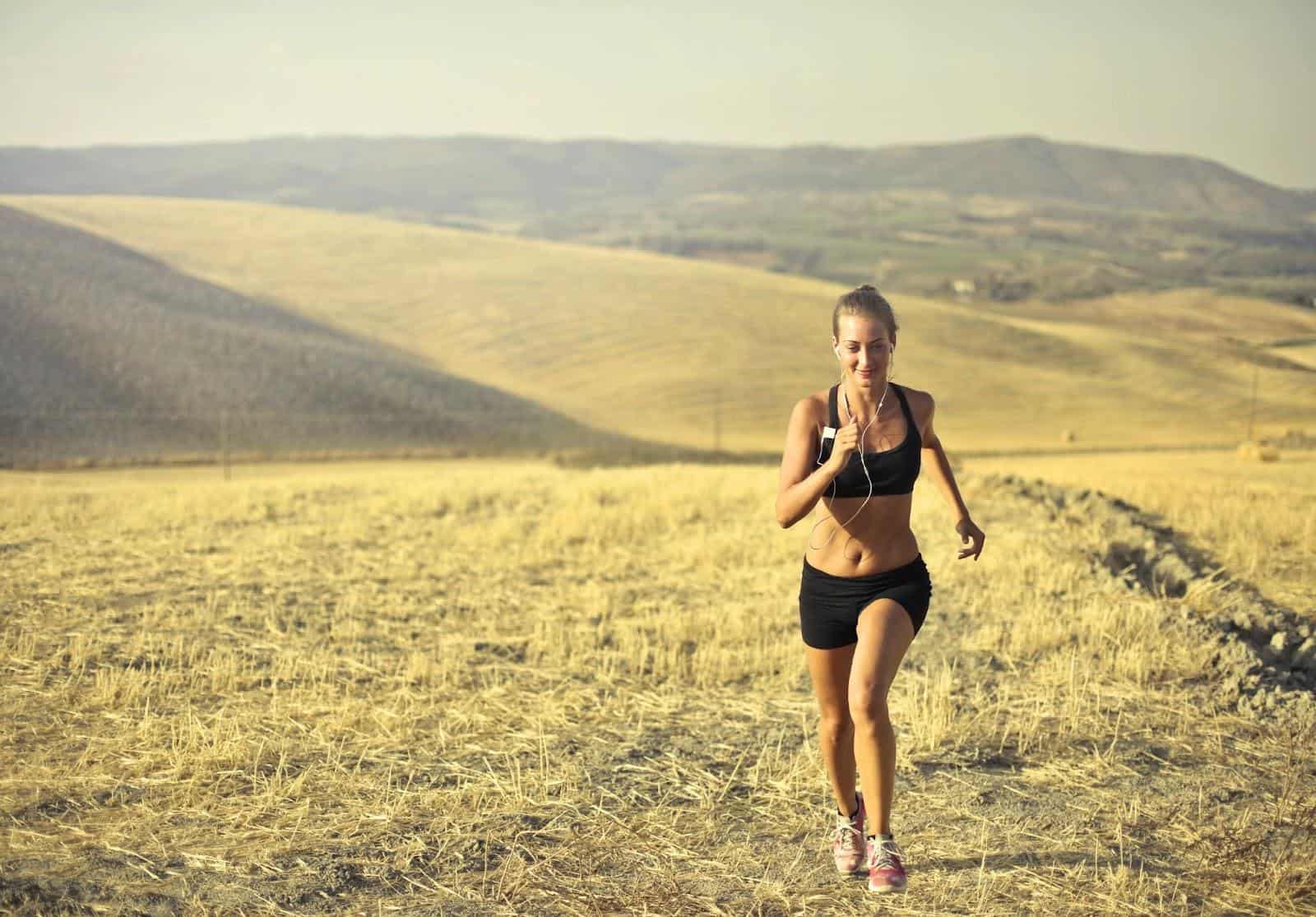
Personalized Nutrition Plan
Personalized nutrition planning is important for long distance runners following vegan or vegetarian diets for several reasons. First, individual nutrient needs can vary based on factors such as age, sex, body weight, training volume, and medical history. Working with a registered dietitian to develop a personalized nutrition plan can help ensure that athletes are meeting their specific nutrient needs for optimal performance and health.
Second, vegan and vegetarian diets can be more challenging to meet nutrient needs compared to omnivorous diets, particularly for athletes who require higher intakes of protein, iron, and other key micronutrients. A registered dietitian can help identify nutrient gaps in an athlete’s diet and suggest appropriate food choices or supplements to fill these gaps.
Finally, personalized nutrition planning can help athletes optimize their performance and recovery by providing tailored recommendations for pre- and post-workout nutrition. This can include recommendations for carbohydrate and protein intake, as well as specific timing and portion sizes.
In summary, personalized nutrition planning is important for long distance runners following vegan or vegetarian diets to ensure they are meeting their individual nutrient needs and optimizing their performance and health. Working with a registered dietitian can help identify nutrient gaps, provide tailored recommendations, and support long-term adherence to a plant-based diet.
Future Research In Vegan And Vegetarian Nutrition
While research in vegan and vegetarian nutrition for long distance runners is growing, there are still many areas that require further investigation. Here are some potential future research directions:
- Long-term studies: Most studies on vegan and vegetarian diets in athletes are short-term, which limits our understanding of the long-term health effects and performance outcomes of these diets. More long-term studies are needed to determine the sustainability and effectiveness of plant-based diets for long distance runners.
- Comparisons to omnivorous diets: Most studies comparing vegan and vegetarian diets to omnivorous diets in athletes have been cross-sectional, which limits our ability to draw causal conclusions. More randomized controlled trials are needed to compare the performance and health outcomes of different dietary patterns in long distance runners.
- Micronutrient status: While vegan and vegetarian diets can be adequate in macro- and micronutrients, some athletes may still have deficiencies in certain nutrients. More research is needed to identify the prevalence of micronutrient deficiencies in vegan and vegetarian long distance runners and the effectiveness of different strategies to address these deficiencies.
- Gut microbiome: The gut microbiome plays an important role in nutrient absorption, immune function, and overall health. More research is needed to investigate the impact of vegan and vegetarian diets on the gut microbiome of long distance runners and the potential implications for performance and health.
- Environmental sustainability: Vegan and vegetarian diets have been associated with lower environmental footprints compared to omnivorous diets. More research is needed to investigate the potential environmental benefits of plant-based diets for long distance runners and to develop practical strategies for promoting sustainability in sports nutrition.
Overall, future research in vegan and vegetarian nutrition for long distance runners should focus on addressing the gaps in our understanding of the long-term health and performance outcomes of these diets, identifying nutrient deficiencies and strategies to address them, investigating the impact on the gut microbiome, and promoting sustainability in sports nutrition.

